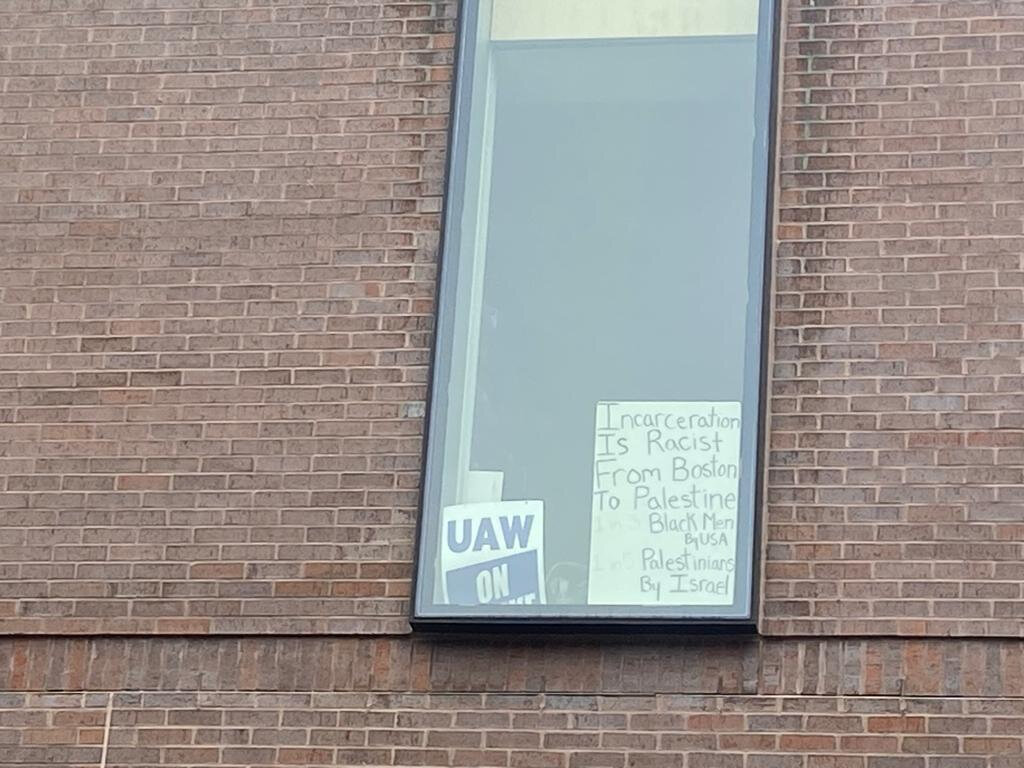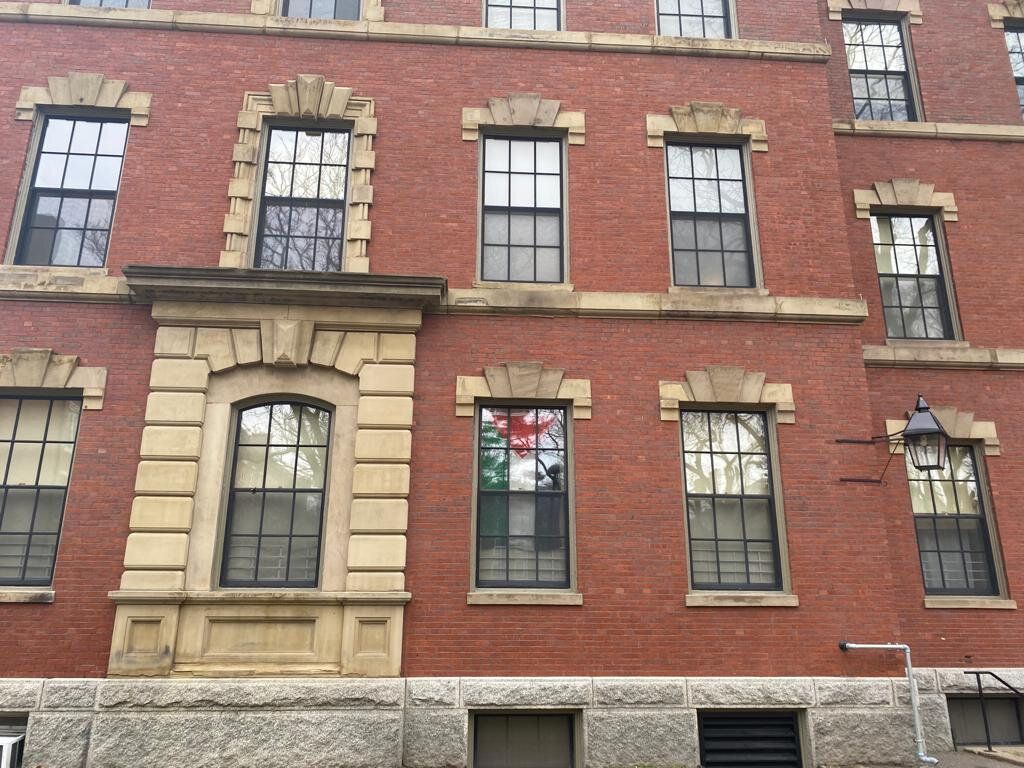 Vampire Weekend's Surprising Jewish Stories
Vampire Weekend's Surprising Jewish Stories


6 min read
If Harvard is the canary in the coal mine for what is deemed acceptable behavior towards Jews in universities, then I can assure you there is danger ahead.
It is no coincidence that I am writing this article overlooking Lowell House, one of Harvard’s 12 undergraduate residential houses. Named after Abbott Lawrence Lowell, the former Harvard President was adamant that the university in which I currently attend impose a quota on the number of Jews gaining admission to this institution of higher learning.
The approved Jewish quota and continued systematic discrimination of Jewish people on behalf of Harvard allowed others forms of racism and prejudice to go unchecked, such as the removal of Black students from dorms and dining halls, and the growing acceptance of excluding Asian Americans from academia.
It is under this context that I seek to examine the role antisemitism plays at America’s oldest and most elite university.
Harvard University leads American campuses in beliefs and acts of antisemitism.
A 2022 study conducted by the AMCHA initiative found that Harvard University leads American campuses in beliefs and acts of antisemitism. In its three quantifiable criteria of redefinition, denigration, and suppression, Harvard ranked first in each category. Furthermore, Jewish students at Harvard responded more affirmingly than any other college campus in response to the prompt questioning students' discomfort in expressing their Jewish identity.
The report said, “The threats to Jewish student identity come from their peers, professors, and even school administrators, and reach every corner of campus life — the quad, classrooms, dorm rooms, student newspapers, social media platforms, student government, and more.”
While I believe there are severe methodological and statistical issues with this survey, it nonetheless begs an important question: if antisemitism is given a pass by an increasingly larger share of the Harvard body, what does that say about the state of contemporary higher education in the United States?
 A sign hanging prominently from a faculty window:
A sign hanging prominently from a faculty window:
Ironically, it was Ken Roth, former Executive Director of the Human Rights Watch who was recently engaged in a spat with Harvard University concerning a rescinded fellowship over a perceived anti-Israel bias, who opined recently, wondering “if Harvard can rescind my fellowship, imagine what they can do with scholars with less notoriety?” In a similar vein, if significant percentages of the student body are allowed to promulgate their antisemitism at America’s most elite institution, imagine the discrimination festering elsewhere in the country.
In February 2022, Hillel Executive Director Rabbi Jonah Steinberg sent a letter to Jewish students across campus, noting “the anti-Israel stickers appearing on Sabra hummus in the dining halls, the tearing down of Harvard Hillel posters all over campus, about which the Dean of Students Office had to issue a statement just this past week, and the black-colored posters everywhere against the Harvard College Israel Trek.”
Indeed, the daunting reality Jewish students at Harvard are faced with is one in which antisemitism is given a platform under the guise of academic free speech and supposed anticolonialism.
Antisemitism is given a platform under the guise of academic free speech and supposed anticolonialism.
Take, for example, the recent lecture by Palestinian poet Mohammed El-Kurd titled “Confronting State Violence: Divestment & Youth Activism.” Co-sponsored by a broad coalition of student groups from the Law School to the College, the event focused on the movement to boycott, divest, and sanction (BDS) the State of Israel.

While I align more to the left on the political spectrum and have been involved in Palestinian dialogue for years, even a liberal such as myself was outraged at the platforming of a notorious antisemite. El-Kurd’s repeated fantasizing of murdering Jewish citizens, and his repeated insistence that Jewish Israelis and Zionists eat the organs of Palestinians or have an inherent bloodthirstiness did not sway the event’s organizers or hundreds of attendees in refusing to participate. El-Kurd’s casual comparisons between the State of Israel and Nazi Germany, lately insisting that Jews have begun “internalizing the ways of the Nazis,” was not seen, at the bare minimum, as a “cancellable” offense.
While I am (more) sympathetic to campus groups such as Jewish Voices for Peace (JVP) or Students for Justice in Palestine (SJP), I was appalled that neither Harvard-equivalent group was willing to put aside political ideologies in condemning a ravaged antisemite. The message the event sent to the Jewish community at Harvard was simple: antisemitism is politically expendable.
 Flying the Palestinian flag at one of the undergraduate houses in the center of Harvard Yard
Flying the Palestinian flag at one of the undergraduate houses in the center of Harvard Yard
As a Harvard student focusing on theology and public policy, I take classes that run counter to my worldview. Learning from Professors and peers in courses such as “Settler Colonialism in Israel/Palestine” at the Divinity School or “Law, Human Rights, and Social Justice in Israel-Palestine” at the Law School is not only healthy, but academically and intellectually imperative. Engaging with a diverse range of opinions at Harvard has allowed me to expand my knowledge and skill set. Such environments are positive affirmations of learning from counter ideologies. What marks the transition into dangerous, and often antisemitic territory, is when the members of said ideologies are unable or unwilling to temporarily leave them behind to condemn all forms of hate.
As Harvard Crimson editor Jacob Miller succinctly wrote:
Harvard already has an antisemitism problem. Just this past year, many Jews were horrified to hear allegations by Government Professor Eric M. Nelson ’99 that a swastika symbol had been found in Currier House. They were disgusted to see imagery reminiscent of the Holocaust painted on a bizarre display in Harvard Yard that seemed to tacitly equate Zionism with Nazism. They were disturbed when this very newspaper’s Editorial Board endorsed the Boycott, Divest, and Sanction Israel movement, a cause that many American Jews consider to be either mostly antisemitic or to have some antisemitic supporters. And they were scared when they discovered an online interactive map that documented the locations of dozens of Boston Jewish organizations in what feels like an apparent “how-to” guide for the hate-crime-curious.
Certainly, while it is important to address discrimination and prejudice against Jewish people, it is also important to be cautious about making general, sweeping statements about an institution without proper context and evidence. It's also important to note that antisemitism is a complex issue, and can take many forms. It cannot be reduced to a single metric or a ranking. If there is any specific information or evidence that suggests a problem with antisemitism at Harvard, it would be important for the university to investigate and address it appropriately, as it has in the past.

My concern regarding antisemitism at Harvard, and American campuses more considerably, is the students themselves, not administrators or professors, who are creating a hostile, and potentially dangerous, learning environment for Jewish students.
Ultimately if Harvard is the canary in the coal mine for what is deemed acceptable behavior towards Jews in universities, then I can assure you there is danger ahead.
The views expressed above are the author’s alone and do not necessarily reflect the opinions of any Harvard-affiliated club, organization, or individual.

As a monthly donator to Aish, I like to see opinion pieces that don't misrepresent facts or remove context. Lowell was a terrible racist and anti-Semite when President between1909 and 1933. While the building should be renamed. Harvard did remove the portrait of him and his wife. As for citing a study then finding fault with its methodology is just silly. I think the author is a decent man I have much to agree with him on. But his argument suffers from the inclusion of silly. All the best